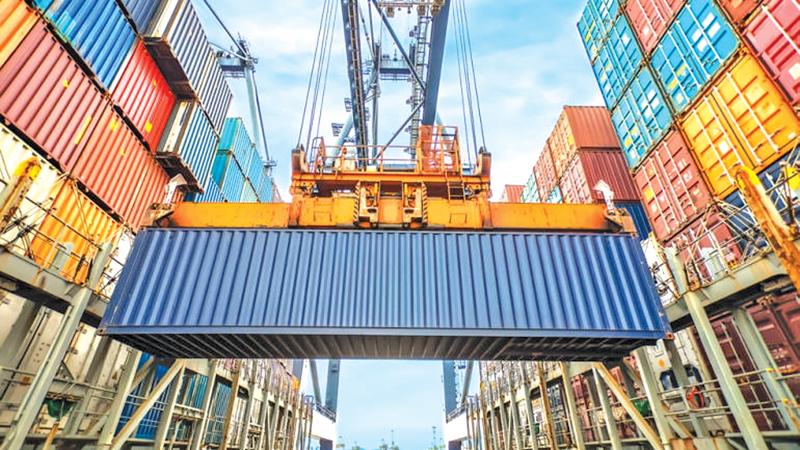
The much anticipated measures to protect local industries and consumers by the flooding of cheap products from overseas markets, will finally see the light of the day with the Anti Dumping and Countervailing Duties Act and the Safeguard Measures Act coming into force this year.
Many attempts were made since 2005 to get this vital piece of legislation enacted. However, dilly dallying by policy makers delayed the enactment of the law to prevent the surge of foreign products injurious to local industries and consumers.
“We now have the ammunition to fight unfair trading practices followed by other countries and protect our manufacturers,” a top official of the Department of Commerce said.
Trade experts said legislation to counter unfair trading practices such as dumping of products by the exporting country was a long felt need and stressed that what was important was the implementation of the law.
“There is no point in having laws if they are not implemented at the right time. Laws which are confined to books do not serve any purpose. We hope the Anti Dumping legislation will not face the same fate,” a trade expert said at the ‘Anti Dumping and Countervailing Duties Act and the Safeguard Measures Act’ forum organised by the Ceylon Chamber of Commerce last week.
Director of Commerce, Gothami Silva said Sri Lanka should have legal provisions and measures to entertain complaints and make determinations regarding unfair trading practices, a legal requirement of the member countries of the World Trade Organisation (WTO).
Sri Lanka has been a member of the WTO since 1995. “We have the instruments and it will provide a comfort zone for our entrepreneurs,” she said.
The enactment of legislation to check the flow of foreign products while being welcomed wholeheartedly by the country, local industrialists are concerned about the free trade agreements to be inked with many regional countries that would further make way for products to come into the country without tariffs.
Sri Lanka has signed free trade agreements with Pakistan, China and Singapore and India.
Trade experts say FTAs are a boon, but could also be a bane, if it favours only one country. The best example is the Sri Lanka-India Free Trade Agreement signed in 1998 and which came into force in 2000, provides duty free concessions to a wide range of products traded between the two countries.
Dumping is considered as exports by a company, of a product or a range of products at a price lower than the price it usually charges in its own home market. The WTO agreement focuses on how governments can or cannot react to dumping. It permits governments to act against dumping where there is genuine injury to the competing domestic industry.
But, to do that, the affected country must be able to prove that dumping is taking place and calculate the extent of dumping as to how much lower the export price is compared to the exporter’s home market price.
The General Agreement of Tariffs and Trade (GATT) permits countries to take action against dumping in a way that would normally break the GATT principles of binding a tariff and not discriminating between trading partners.
Anti-dumping action refers to imposing an extra import duty on a particular product from the exporting country to bring its price close to its normal value or to prevent injury to domestic industry or industries of the importing country.
“There are ways to calculate whether a product is dumped heavily or only in a small way. The primary one is considering the price in the exporter’s market. If this method cannot be applied, two alternatives such as the price charged by the exporter in another country, or the combination of the exporter’s production costs, other expenses and normal profit margins are provided to confirm dumping,” the Director of the Department of Commerce said.
Senior State Counsel Rajiv Goonetilleke said a trade defensive mechanism to be competitive is vital with imports expected to surge with FTAs coming into force.
However, trade experts said calculating the extent of dumping of a product alone is not adequate. A comprehensive investigation has to be carried out in line with the WTO agreement and if investigations reveal that dumping is taking place, the exporting company can undertake to raise its price to an agreed level to avoid anti-dumping import duty.
Subsidies and countervailing measures under the agreement, disciplines the use of subsidies and regulates the actions countries could take to counter the ill-effects of subsidies. It specifies that a country could use the WTO dispute settlement procedure to seek the withdrawal of the subsidy or the removal of its adverse effects.
A WTO member could limit imports of a product temporarily under safeguard measures if its domestic industry is injured or threatened with injury caused by a surge in imports.
Titan International, a US tyre manufacturer, filed action against Sri Lanka, China and India alleging goods from the three countries were dumped in US markets having benefitted from subsidies offered by the respective governments.
The Cabinet granted approval for the legislation last year, to the joint proposal made by the Ministers of Industry and Commerce and Development Strategies and International Trade.
